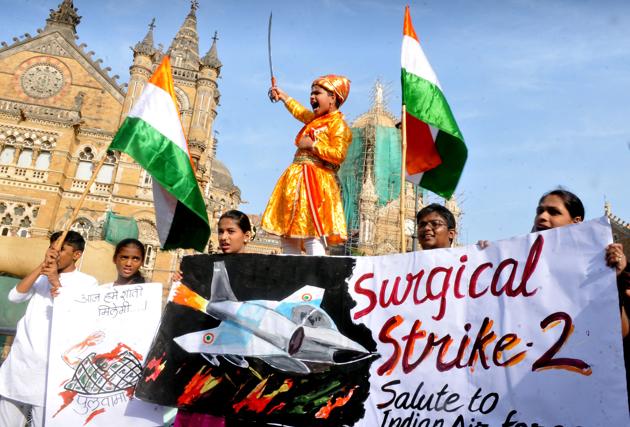By Dr. Gyan Pathak
Pahalgam terror attack on April 22, 2025 escalated the tensions in India and Pakistan to a new high, yet the war mongers have by and large failed in their intentions so far, barring only some exchange of fire on the line of control along the Jammu and Kashmir border.
The deadline for Indian citizens to return from Pakistan by May 1 through Attari border, is yet a few days away. The leave India deadline for Pakistani nationals holding medical visas will end on April 29, while the deadline for Pakistanis holding SAARC visas have already ended on April 26, and for other Pakistani nationals has ended on April 27.
Border Security Force (BSF) had ordered the farmers of Punjab on April 26 to complete their harvesting within 48 hours on their land between the fence in the Indian side and the zero line on the India-Pakistan international border and clear their fields. It should be noted that there is 530 km international border in the Punjab sector.
While India is still weighing its options to eliminate the terror network and their supporters, Pakistan is seen actively enhancing its military readiness after declaring India’s announcement of suspension of Indus Water Treaty of 1960 as “an act of war” and then announcing the suspension of Simla Agreement of 1972.
Pakistan has denied its involvement in Pahalgam terror attack, but India did not accept their denial in the backdrop of Pakistan’s traditional involvement in proxy war and terror attacks in India. After tremendous pressures, Pakistan has now demanded for a neutral investigation of the Pahalgam terror attack, which China has supported. It has complicated the Indian options of eliminating terror networks that have been active against India.
Not only that China rushes PL 15 missiles to Pakistan. China also vows to support Pakistan in safeguarding its sovereignty and security interests. Chinese Foreign Minister has called for restraint from both the countries. Turkey has also been reported of sending combat equipment to Pakistan including fighter aircrafts.
The report coming in the media suggests that Pakistan has already initiated many more strategic measures in preparation for a potential war with India. Earlier, a Pakistani minister Hanif Abbasi has threatened India of 130 missiles and also nuclear weapons are kept for India.
There is report that Pakistan has transferred control of all railway stations to the Pakistan Army, to facilitate rapid transport of militia equipment. Pakistan Army has also positioned its elite Special Services Groups (SSG) commandos near vulnerable stretches of the border with India.
Earlier, in response to India’s suspension of the Indus Waters Treaty and other diplomatic actions, Pakistan had closed its airspace to Indian aircraft and suspended cross-border trade and visa services. Pakistan has issued stern warning of potential “all-out-war” if provoked further.
Media reports suggest that Pakistan is also enhancing its navel strength with the help of China. Pak government is also seeking international support to put pressure on India to get the Indus Water Treaty restored, and called for “impartial investigation into Pahalgam attack”.
On the other hand, India is weighing its options, and keeping utmost restraint so far, by not rushing for war with Pakistan, though the country is serious on its commitment for elimination of terror networks, and to bring the culprits for Pahalgam terror attack to justice. India is all for measured response to the terror attack.
India has undertaken a series of strategic, military, and diplomatic measures aimed at addressing the immediate security concerns and signalling its stance against cross-border terrorism. Indian security forces have intensified operations in Jammu and Kashmir, resulting in the detention of over 1,700 individuals and the demolition of properties linked to suspected militants.
The Indian Navy conducted test-firings of long-range precision missiles, demonstrating heightened military preparedness. India has been conducting simultaneous tri-service military exercises involving the Army, Navy, and Air Force.
India has also declared that it is fully prepared to deal with any eventuality in the course of its move to eliminated terror network, and their supporters. India has given enough signal that in the event of conflict, the country would widen its domain, which may include land, air, sea, and cyber space. India is prepared to strike deep inside Pakistan, in the event of war.
India is not rushing for war and weighing its options, especially after the China’s and Turkey’s supporting Pakistan. Pahalgam terror attack has been strongly condemned by UN and Security Council but that does not mean that the USA or the UN will stand fully by India if Prime Minister Narendra Modi opts for strong military action against Pakistan much beyond the destruction of the terror camps. The situation is delicate and it needs very very careful handling. War mongering and chest thumping will not do, what is needed is a clear policy to deal with the cross border terror and to work to achieve that objecting by making use of all international forums. (IPA Service)

 China’s Warning Against Nations Striking Trade Deals With The US Is Absurd
China’s Warning Against Nations Striking Trade Deals With The US Is Absurd 